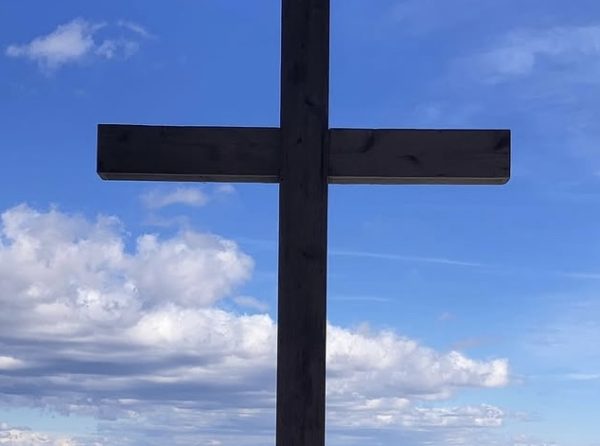Opinion: Stand with women in Iran
Imagine living in a world where peaceful protests aren’t considered freedom of speech and being beaten is widely accepted. You can’t? What about being forced to marry at 13 and have no protection from abuse at home? That’s the world Iranian women are living in.
Women’s rights have been a concept I have studied since I could walk. In school, we talk about the 19th Amendment and the treacherous fight women made and still make to be considered equal in our country. However, we rarely educate ourselves about the women in other countries, fighting for the rights we are now afforded.
In Iran, women’s rights have been on the same line for decades.
A BBC article explains the transition of the government in Iran.
In the 1960s, Iran was an imperial government led by Shah Mohammad Reza Pahlavi. The shah’s government allowed women the right to vote, raised the age of marriage and allowed a choice of whether to wear a hijab.
However, in 1979 Iran went under the Islamic Revolution. The theocracy leading the Islamic Republic of Iran cares less about women’s rights which has led to the work of the Shah’s regime disappearing and progress moving back to square one.
Women in Iran have protested since 1979 and, still, they are silenced by violent attacks and seclusion from the society around them.
Iranian women are done letting men and their country control what their lives are like; however, they are doing this at a cost.
On Sept.16, 22-year-old Mahsa Amini was killed in the custody of morality police. It has created a viral awakening and women around the world are beginning to realize.
While Urban Dictionary says how “morality police” is used in slang usage, CNN, indicates that in Iran, the morality police is an official “dedicated unit that enforces strict dress codes for women.”
Amini woke up one morning not realizing she would be killed for simply wearing her hijab ‘wrong.’ This killing provoked other women to start protesting for their rights across the world.
Thousands of pictures are posted on the media of the protests going on. One specific photo that caught my eye was of an activist who wore a mask that read, “stop killing us,” after the killing of Amini. It is such a powerful photo because it is a simple plea for having basic human rights.
I was scrolling through TikTok a couple of days after I found out about Amini’s killing. I watched students dress up for spirit week in one video, a child taking his first steps in another and finally a video of a Persian woman crying for recognition.
On a first person account, user Tarane Tajik shares on TikTok, “We need help. Please let our story and Mahsa’s be heard.”
She took the video on Sept. 21 at 9:50 p.m. She painfully describes being cut from everything around the world. You could see the fear in her eyes as she tried to control the tears, pooling in her eyes.
Tajik educates her views on the extent of the restrictions Iranian people are put on.
The government is trying to restrict Iranian women as much as they can to try and control how much of the truth is being exposed about the conditions and events happening.
Tajik along with other Iranians, have to remove their sim card and connect their phone to multiple VPNs in order to reach their friends and use platforms like Instagram, TikTok and WhatsApp.
Besides using social media to educate people outside Iran on the measures they are taking, people are also protesting with a physical presence on the streets.
Peacefully, hundreds of men and women in Iran are being seen burning hijabs and/or cutting their hair. Cutting hair is universally seen as a symbol of protest.
Abir Al-Sahkani, a Swedish member of the European Parliament, cut her hair to show her full support for the women in Iran.
“This is why I, and people globally who believe in human rights, freedom, and democracy, are obliged to show support and solidarity with the women in Iran,” Sahkani quoted in Vogue.
We need to continue to recognize the risk these women are taking and use the platforms we are freely given to advocate their issues.
Elnaz Rekabi, an Iranian sport climber, was seen competing at the International Federation of Sports Climbing’s Asian Championships in Seoul, South Korea, on Oct. 16 without her hijab on.
As she flew back to Iran, she was greeted by family and fans who called her a “heroine” because they believed she was being civilly disobedient against the forceful dress code.
Rekabi stated an apology on her Instagram and in a quick video; she stated her reason for not wearing a hijab was by complete mistake and forgetfulness because she was in a rush to get out and compete.
Other athletes and Iranian women that have disobeyed the rules have come out to say the Iranian government has pressured them for similar apology statements to cover up any personal protest allegations.
It’s unclear whether Rekabi was forced to apologize or not, but still, out of her safety, she was required to show the extent of her apology to protect her well-being against her own country.
As protests are growing, more men and women are fighting for their freedom. We can only hope women are making progress for their future.
We need to support Iran from 7,344 miles away and help them use their voice.
Help the little girl in Iran who doesn’t want to be scared anymore for constantly making sure her hijab is on right, and who wants to go to school instead of marrying a man who has no respect for her rights.
Instead of supporting the country for a week and letting it fade away like a trend, we need to continue to fight with them until a change is actually made.






